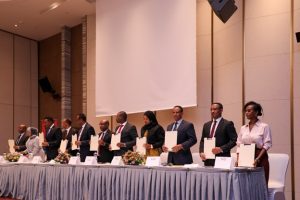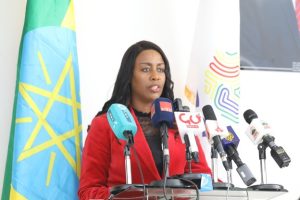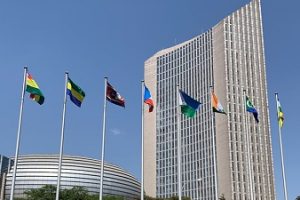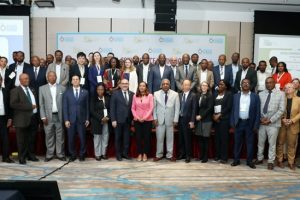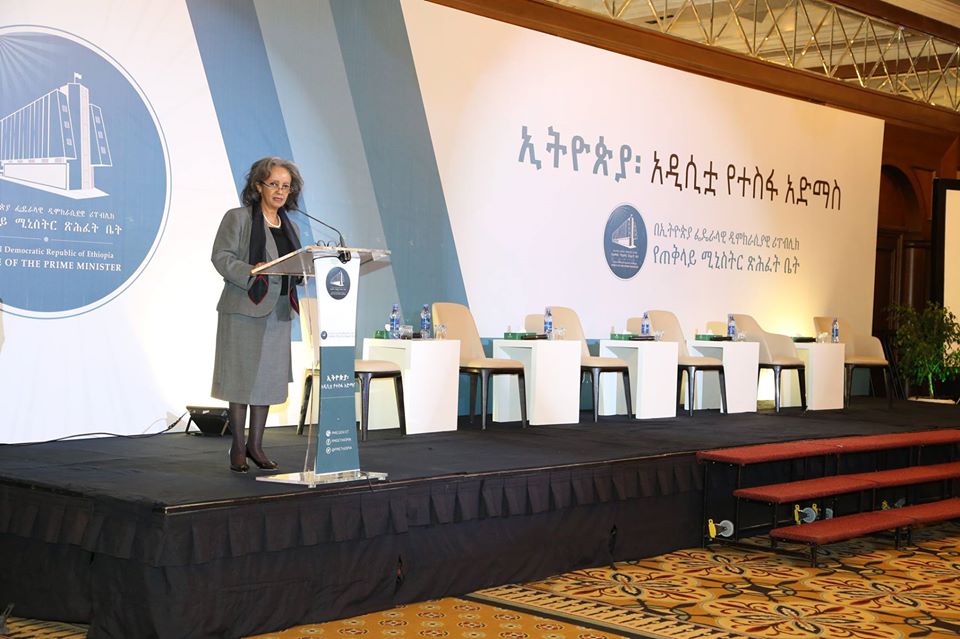


ADDIS ABABA – Ethiopia is on the right time to capitalize on the advantages and mitigate drawbacks in supporting the ongoing reform through knowledge rather than emotion, says FDRE President Sahlework Zewde.
Officially opening a two-day high-level discussion forum yesterday the President noted that Ethiopia is on an all-embracing reform.
She also added that there is a need to create logical, critical, skillful and knowledgeable generation to realize a better Ethiopia. She assured that the inputs from the discussion are not going to remain only on report paper but would be utilized as vital policy inputs.
She further reiterated that scholars have a big responsibility to in figuring out the path of reform for the society, bringing knowledge enlightenments, information, sovereignty, inducing culture of discussion and critics.
The two day discussion forum will deliberate on democratization process in Ethiopia, Ethiopia’s foreign policy, Ethiopia’s economic growth and entrenching democracy in Ethiopia.
Speaking on the Historical background and current challenges of democratization process in Ethiopia Assistant Professor of History at Addis Ababa University, Abebaw Ayalew, said that Ethiopian democratization process can be grouped in to two: The process of democratization that occurred in the late 19th and 20th century is the first phase of the process. Hence, there were many challenges on that time and also there were some revolutions but still it was not fruitful.
On the other hand, the second democratization phase in the 21st century especially what has happened a year ago is very different from the others in spite of the fact that it emanated from within the ruling party. In contrast, Abebaw mentioned institutional building process, political parties’ bad situation and political apathy are the basic challenges for the current reform which have to be solved.
Dr. Dima Negewo, Political Economist and researcher said on the occasion that the current reform is unique for two basic reasons. First, as compared to others, this reform is raised from the internal part. On the previous time there were some revolutions and reforms in the country despite their sources were external depending on either in the country or foreign countries interfere.
Second, Dr. Dima also notified that the late reforms and changes were supported by the military body, yet currently the reform is only based on democracy and logical reasons. This
directly shows that the democratization process path of the country is on good track he added.
On the contrary, Dr. Dima has confirmed that the government, scholars and stakeholders should participate on fighting against the challenges on the democratization process. Unresolved long term needs of the society, accountability, economic and security challenges ethnicity and other problems must be solved for building democracy in Ethiopia.
Ekram Mohamod and Dr. Semir Yusuf, political science lecturers and researchers who presented study paper on the panel discussion agreed on uniqueness of this internal reform.
Diplomatic Analysts who presented paper on the panel discussion said Ethiopia’s foreign relations should give due attention to strengthen its multilateral diplomatic tradition and institutionalizing international relations through analyzing regional, continental and international political changes,.
During the panel discussion which discussed Ethiopia’s foreign policy and position in Africa, the diplomatic experts and former Ambassadors said that Ethiopia has a consistent experience of multilateral diplomacy in its foreign relations.
The experts argued that as the current world diplomacy is dynamic, the country should focus on multilateralism through analyzing the international changes timely to protect its national interest.
African Union Human Rights Commissioner and International Relations Analyst, Solomon Ayele (PhD) said that Ethiopia should give due attention to African diplomacy. According to Solomon the Horn of Africa’s diplomacy so far focused on conspiracy. He said that although Ethiopia’s relation with Eritrea is a blessing to the region, other neighboring countries could view it as a threat.
Solomon said that new diplomatic relations have to go parallel with protecting its former allies regionally and internationally.
Abdul Mohammed, Diplomatic Analyst and consultant in African Union also agreed that the new bilateral relations with Eritrea must develop to multilateral diplomacy and should benefit the region as a whole. He argued that Ethiopia has best experiences of consistent multilateral diplomacy and its tradition should wisely use to strengthen its current hopeful foreign relations.
Ambassador Hiruy Amanuel, former Diplomat and Consultant with United Nations on his part argued that the current diplomatic actions and government commitments are interesting. He stated that Ethiopian government must be clear rather than being tightlipped for other neighbors. He stated that its relations with neighbors and other external relations must be institutionalized and developed to multilateral level than bilateral actions. Although the bilateral relations are on their place, it is best to develop the relations to multilateral level.
AdisWeg discussion platform organized by the FDRE office of the Prime Minster yesterday disclosed that Ethiopia is on all-embracing reform. And panelists on “democratization in Ethiopia” agreed that the reform is unique for it is internal.
The Ethiopian Herald March 23/2019
BY HIZKEL HAILU AND
DARGIE KAHSAY


